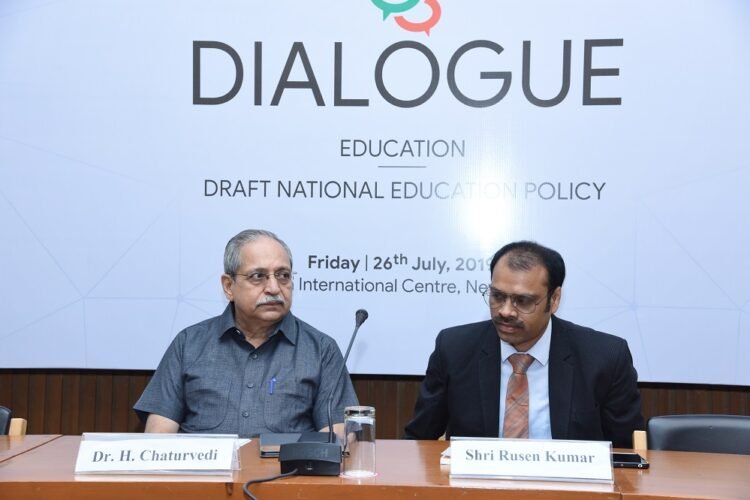New Delhi – India CSR Network founder Rusen Kumar has said that the success of the proposed education policy will depend upon how effectively the policy is implemented and monitored once it becomes a law. The country needs a regular update on its progress, nothing short of a weekly or a monthly update, he added.
Kumar said this during a discussion on the draft policy, organised by country’s largest news portal on CSR (corporate social responsibility) and sustainability.
The aim to discuss the Draft NEP was to bring awareness about the policy and ensure a greater participation and commitment towards the goal, India CSR founder, Kumar said.
While a lot of corporate and civil society organisations are doing some wonderful work in the education sector, it will be interesting to know how they identify with the draft policy, he added. There is much clarity now on what we can expect from the businesses, he added.
The suggestions will be handed over to the MHRD so that it gets to know the concerns of each stakeholder, he said adding that the government in its wisdom can then take the call on how to go about them.
The MHRD constituted a committee in June 2017, under the chairmanship of former ISRO chairman Krishnaswami Kasturirangan to prepare the Draft NEP, 2019.
The ‘India CSR Dialogue’ spoke about expectations and opportunities for the corporate sector and the civil society in the Draft NEP. It also talked about the role that the two stakeholders could play to take forward the Sustainable Development Goal (SDG) 4, which envisages to “ensure inclusive and equitable quality education and promote lifelong learning opportunities for all” by 2030.
“This is a historic moment. It is only the third instance in the history of Indian republic that an education policy is being envisaged. It was in 1966, that the policy was first formulated,” Dr. Harivansh Chaturvedi, Director at the Birla Institute of Management Technology (BIMTECH) said, while speaking at the occasion.
Dr. Chaturvedi welcomed the Draft policy’s proposal to increase the span of education from existing 6-14 years to 3-18 years. He also praised the proposal to improve infrastructure; closing schools which are financially unviable and shifting the students to neighborhood schools.
He however, said that the implementation part would pose real challenges for the government as an exercise of this nature would require huge resources including increased budget allocations. He said that the existing education budget was hardly 3% of the Gross National product (GNP) even after 52 years since the first policy came which recommended for a 6% allocation.
On the role and opportunities for the corporate sector working in education initiatives as part of their corporate social responsibility, Dr Chaturvedi said that the entire CSR expenditure in the country was Rs 15,000 crore while the government’s allocation on education in this year’s budget was around Rs 100,000 crore.
The CSR expenditure on education initiatives was even less so the primary responsibility rested with the government, he said adding that the private sector’s role was secondary but significant. It should act as an augmenter, he added.
He said that the corporate sector could invest in promoting soft infrastructure like teacher and parents’ education, soft skills development in students, among other things.
While a lot of corporate and civil society organisations are doing some wonderful work in the education sector, it will be interesting to know how they identify with the draft policy, he added. There is much clarity now on what we can expect from the businesses, he added.
The suggestions will be handed over to the MHRD so that it gets to know the concerns of each stakeholder, he said adding that the government in its wisdom can then take the call on how to go about them.
The ‘India CSR Dialogue’ was organised in collaboration with Stem Learning and Friends Union for Energising Lives (FUEL).







